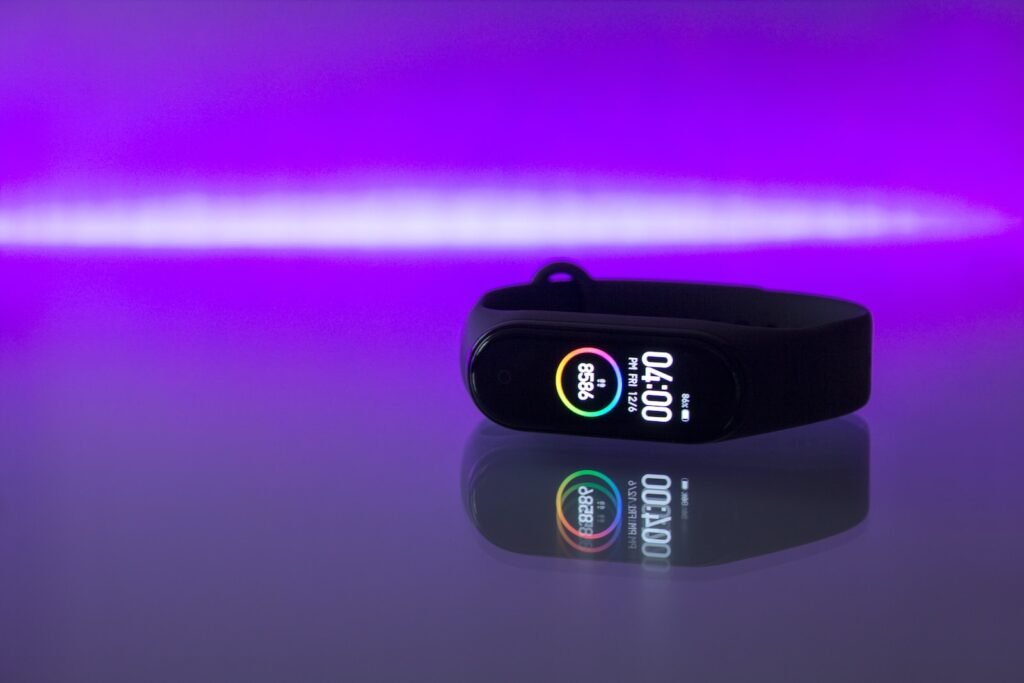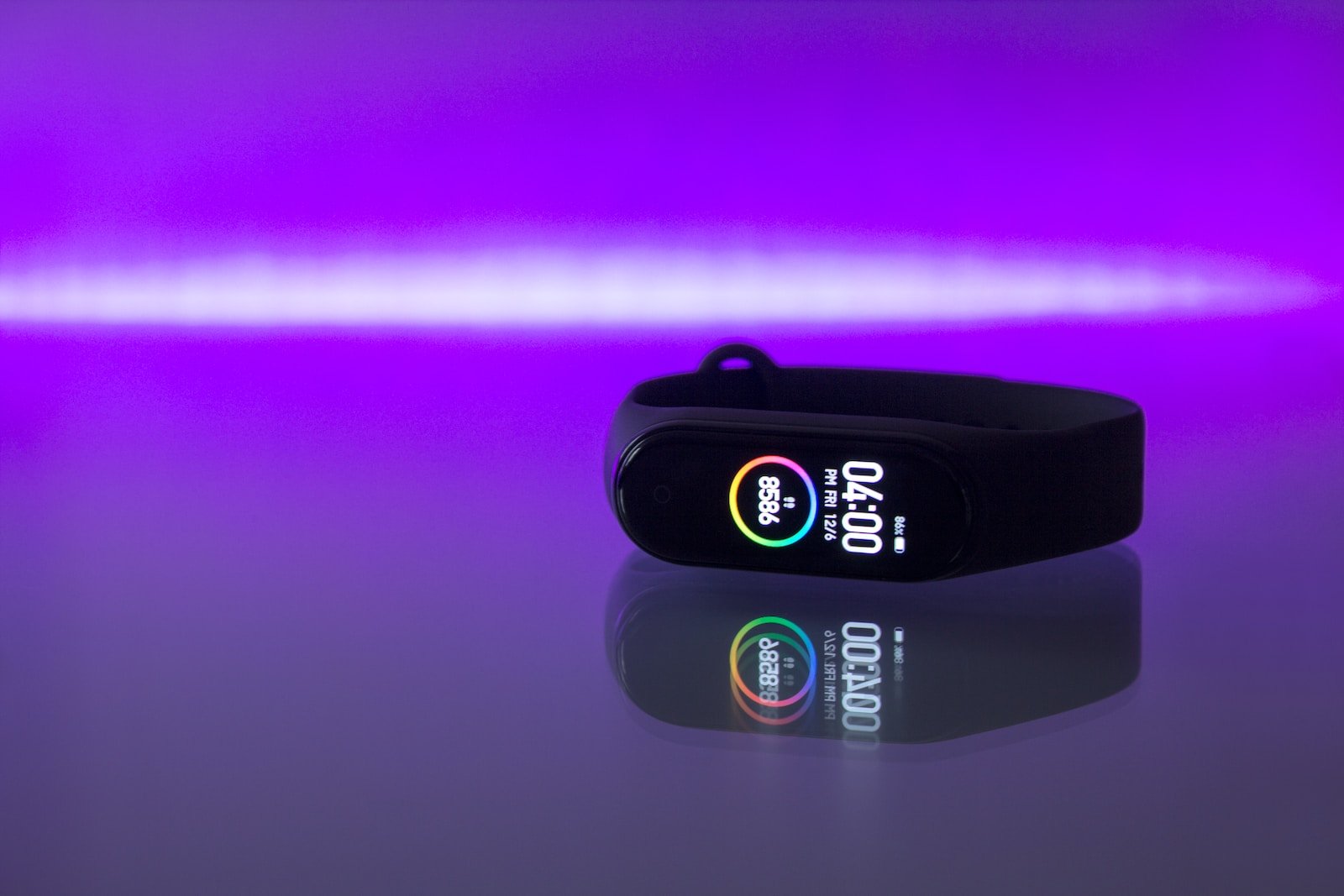Are you ready to take your fitness journey to the next level? Look no further than a fitness tracker. These handy devices have revolutionized the way people approach exercise, providing a multitude of surprising benefits. From tracking your steps and heart rate to monitoring your sleep patterns and calories burned, a fitness tracker is the ultimate companion for achieving your health and wellness goals. Get ready to discover the hidden advantages of incorporating a fitness tracker into your daily routine.
Tracking Daily Activity
Counting Steps
A fitness tracker allows you to effortlessly keep track of your daily steps. By providing a step count, it encourages you to stay active and meet a specific goal, such as 10,000 steps per day. Counting steps can help you become more aware of your activity level and motivate you to move more throughout the day.
Measuring Distance
With a fitness tracker, you can accurately measure the distance you cover during your workouts or daily activities. This feature is especially useful for runners and walkers who want to keep track of their mileage. Measuring distance not only helps you set goals and chart your progress, but it also adds a sense of accomplishment as you see the distance you have covered increase over time.
Monitoring Calorie Burn
Fitness trackers provide an estimate of the calories you burn throughout the day, based on factors such as your age, weight, and activity level. This information can be valuable for weight management and maintaining a healthy lifestyle. By monitoring your calorie burn, you can make more informed choices about your diet and exercise routine.
Tracking Active Minutes
In addition to counting steps, fitness trackers also track the amount of time you spend in active motion. This includes activities such as walking, jogging, and even dancing. By monitoring your active minutes, you can set goals to increase your physical activity and improve your overall health. Tracking active minutes helps you see how much time you are devoting to exercise and encourages you to incorporate more movement into your daily routine.
Setting and Achieving Goals
Creating Personal Goals
One of the great benefits of using a fitness tracker is the ability to set personal goals tailored specifically to your needs. Whether you want to increase your step count, run a certain distance, or exercise for a specific amount of time, fitness trackers allow you to set these goals and track your progress. Creating personal goals gives you something to strive for and helps you stay motivated on your fitness journey.
Monitoring Progress
Fitness trackers provide a visual representation of your progress towards achieving your goals. By monitoring your progress, you can see how close you are to reaching your desired outcomes. This visual feedback can be incredibly motivating, as it shows you the tangible results of your efforts. Seeing your progress unfold before your eyes is a powerful incentive to keep pushing forward.
Celebrating Milestones
As you work towards your goals, fitness trackers enable you to celebrate milestones along the way. Whether it’s reaching a certain step count, running a new personal best, or consistently meeting your activity targets, celebrating these milestones gives you a sense of accomplishment and boosts your self-confidence. Recognizing and celebrating your achievements keeps you motivated and inspired to continue on your fitness journey.
![]()
Increasing Motivation
Visualizing Progress
Fitness trackers offer visual representations of your daily activity, helping you visualize your progress over time. These visual displays, such as graphs and charts, make it easy to see how far you’ve come and how consistent you’ve been in your efforts. Being able to visually track and monitor your progress provides a powerful motivational tool to help keep you engaged and determined.
Competing with Friends
Many fitness trackers allow you to connect and compete with friends or other users. This feature adds a social and competitive element to your fitness journey, spurring you on to achieve more. By challenging friends to step competitions or sharing workout achievements, you can find motivation in friendly competition and support one another to reach your goals.
Earning Achievements or Badges
Fitness trackers often have built-in achievement systems or badges that reward you for meeting certain milestones or completing specific challenges. Whether it’s hitting a step goal, reaching a certain number of active minutes, or achieving a new personal record, earning these badges provides a sense of accomplishment and encourages you to keep pushing yourself. The gamification aspect of fitness trackers adds an element of fun and excitement to your fitness routine.
Improving Sleep
Monitoring Sleep Duration
Sleep plays a crucial role in overall health and well-being. Fitness trackers with sleep tracking capabilities can monitor your sleep duration, giving you insights into the quality and quantity of your sleep. By understanding how much sleep you are getting each night, you can make informed decisions to prioritize rest and establish healthy sleep habits.
Tracking Sleep Patterns
In addition to sleep duration, fitness trackers can track your sleep patterns, including light sleep, deep sleep, and REM sleep. This information helps you gain a deeper understanding of your sleep quality and identify any patterns or disruptions that may be affecting your rest. Tracking sleep patterns can empower you to make adjustments to your bedtime routine or lifestyle habits to optimize your sleep.
Identifying Sleep Disruptions
Fitness trackers can also identify sleep disruptions, such as periods of wakefulness throughout the night. By recognizing when and how often you wake up during sleep, you can investigate potential causes and take steps to improve your sleep environment or address any underlying issues. Identifying sleep disruptions allows you to make necessary changes and get the restful sleep your body needs to function at its best.

Enhancing Workouts
Measuring Heart Rate
Fitness trackers equipped with heart rate monitors provide real-time feedback on your heart rate during exercise. Measuring your heart rate helps you gauge the intensity of your workout and ensure you are staying within your target training zone. By monitoring your heart rate, you can optimize your workouts for maximum effectiveness and avoid overexertion.
Monitoring Exercise Intensity
In addition to heart rate, fitness trackers can monitor exercise intensity through features such as GPS tracking and accelerometer technology. These features provide valuable data on factors such as speed, distance, and elevation. Monitoring exercise intensity allows you to tailor your workouts to meet your specific goals, whether it’s improving endurance, increasing speed, or burning calories.
Providing Workout Feedback
Fitness trackers often provide real-time feedback during workouts, offering insights into your performance and progress. This feedback can be in the form of alerts, notifications, or guidance on how to achieve your desired results. By receiving immediate feedback, you can make adjustments to your workout intensity or technique, ensuring you are making the most of your exercise sessions.
Prescribing Optimal Training Zones
Fitness trackers, especially those with advanced features, can prescribe optimal training zones based on your fitness level and goals. These training zones help you optimize your workouts by specifying the appropriate heart rate range or intensity level for different types of training, such as fat burning or cardio endurance. By following the recommended training zones, you can achieve better results and avoid overtraining or undertraining.
Promoting Accountability
Sharing Progress with Others
Fitness trackers often allow you to share your progress and achievements with friends, family, or an online community. By sharing your journey, you create a sense of accountability and support. The act of sharing your progress can motivate you to stay on track, as you have a network of individuals cheering you on and holding you accountable to your goals.
Discussing Goals with Fitness Professionals
Another way fitness trackers promote accountability is by facilitating discussions with fitness professionals. Many trackers come with companion apps or platforms where you can connect with trainers or coaches to discuss your goals and progress. This interaction fosters accountability, as you have a dedicated professional who can provide guidance, answer questions, and help you stay motivated and focused.
Receiving Social Support
Fitness trackers often have social features that allow you to connect with a community of like-minded individuals. This social support system provides encouragement, advice, and a sense of belonging. By surrounding yourself with individuals who share similar goals and interests, you can find support during challenging times and celebrate milestones together.
![]()
Preventing Overtraining
Monitoring Training Load
Overtraining can hinder progress and lead to injuries. Fitness trackers can help prevent overtraining by monitoring your training load. By tracking metrics such as exercise duration, intensity, and frequency, fitness trackers can provide insights into your training volume and help you avoid excessive or unbalanced workouts. By optimizing your training load, you can prevent burnout and maintain consistent progress.
Preventing Workout Plateaus
Plateaus can be frustrating and demotivating in any fitness journey. Fitness trackers can help you prevent workout plateaus by providing data and insights into your progress. By analyzing trends and patterns in your performance, such as heart rate, pace, or distance, you can identify areas that may need adjustment to continue making progress. With this knowledge, you can modify your workouts or try new training techniques to keep challenging your body and avoid reaching a plateau.
Avoiding Overuse Injuries
Overuse injuries can result from repetitive stress on certain muscles or joints. Fitness trackers can help you avoid overuse injuries by providing feedback on your activity level and workout intensity. By analyzing your exercise data, such as step counts, distances, and exercise logs, fitness trackers can help you identify potential issues and make necessary adjustments to your routine. Avoiding overuse injuries allows you to maintain a consistent fitness routine without setbacks.
Tracking Heart Health
Monitoring Resting Heart Rate
Resting heart rate is an essential indicator of cardiovascular health. Fitness trackers can monitor your resting heart rate, providing valuable information about your overall heart health. By tracking changes in your resting heart rate, you can detect any abnormalities or trends that may warrant further medical attention. Monitoring resting heart rate empowers you to be proactive about your cardiovascular well-being.
Tracking Heart Rate Variability
Heart rate variability is a measure of the time intervals between heartbeats and can provide insights into stress levels and overall health. Fitness trackers equipped with heart rate variability tracking help you assess your autonomic nervous system function and provide information on your body’s ability to adapt to varying stressors. Tracking heart rate variability can enable you to identify patterns and make lifestyle adjustments to enhance your wellness.
Identifying Potential Cardiovascular Issues
By continuously tracking metrics such as heart rate, heart rate variability, and other vitals, fitness trackers can help you identify potential cardiovascular issues. Any significant variations or abnormal readings can indicate underlying health concerns, prompting you to seek medical advice. Identifying potential cardiovascular issues early on can lead to timely interventions and improved health outcomes.
![]()
Boosting Awareness and Insight
Staying Mindful of Physical Activity
Using a fitness tracker promotes mindfulness of your physical activity levels throughout the day. By increasing your awareness, you can make conscious choices to incorporate more movement into your daily routine. Whether it’s taking breaks to walk, opting for the stairs instead of the elevator, or scheduling regular exercise sessions, staying mindful of your physical activity encourages you to prioritize your health and well-being.
Identifying Sedentary Behavior
Fitness trackers can help you identify periods of sedentary behavior, such as sitting or lying down for extended periods. Sedentary behavior is associated with various health risks, including obesity and cardiovascular issues. By being alerted to prolonged periods of inactivity, you can take steps to break up sedentary behavior and engage in more movement throughout the day. Identifying and reducing sedentary behavior contributes to a more active and healthier lifestyle.
Understanding Activity Patterns
Fitness trackers provide a wealth of data on your activity patterns, including the time of day you are most active and the types of activities you engage in. By understanding your activity patterns, you can better plan your workouts, schedule physical activity during peak energy times, and identify any areas where you may be lacking consistency. Understanding your activity patterns helps you make informed decisions to optimize your fitness routine.
Fostering a Healthier Lifestyle
Encouraging Regular Physical Activity
Perhaps one of the most significant benefits of using a fitness tracker is the encouragement it provides to engage in regular physical activity. By tracking your daily activity and setting goals, fitness trackers remind you to move and inspire you to be more active. The consistent feedback and reminders create a habit of regular physical activity, leading to a healthier and more energetic lifestyle.
Promoting Overall Wellness
Fitness trackers encompass various health metrics and tracking features that promote overall wellness. By monitoring factors like sleep, heart rate, steps, and active minutes, fitness trackers emphasize the importance of a well-rounded approach to health. By addressing different aspects of wellness, fitness trackers help you take a holistic approach to your well-being.
Establishing Healthy Habits
Using a fitness tracker encourages the establishment of healthy habits. As you track your daily activity and progress towards your goals, you develop a routine and mindset focused on bettering your health. Through consistent use, fitness trackers foster positive behaviors such as regular exercise, proper sleep, and mindful movement. By establishing healthy habits, you set the foundation for long-term health and well-being.
Using a fitness tracker offers numerous benefits that can enhance your journey to a healthier and more active lifestyle. From tracking your daily activity to setting and achieving goals, monitoring sleep patterns, improving workouts, promoting accountability, preventing overtraining, tracking heart health, boosting awareness, and fostering a healthier lifestyle, the advantages are undeniable. So, seize the opportunity to make the most of your fitness journey with the help of a fitness tracker and embrace the positive changes it can bring to your life.
![]()




